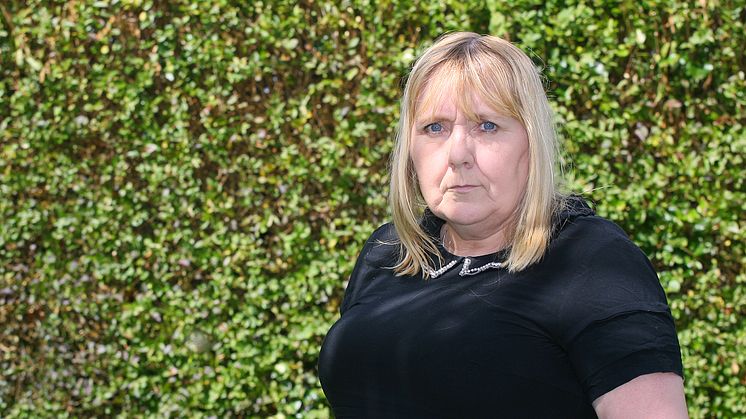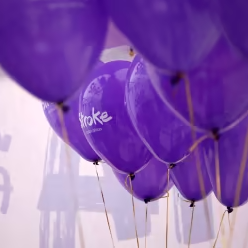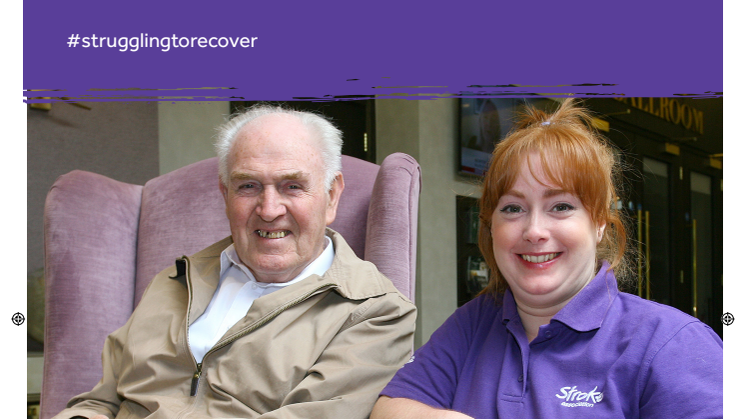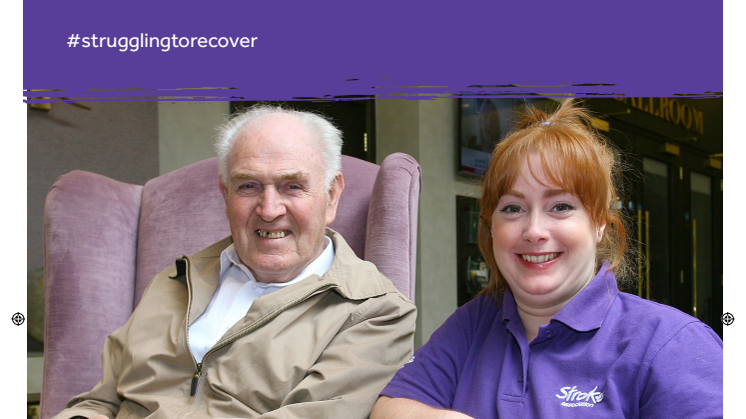
Press release -
Stroke survivors in Northern Ireland “struggling to recover”
Stroke is a brain attack. It is the third biggest killer in Northern Ireland and the leading cause of adult disability[1].
The charity’s latest report, Struggling to Recover[2], developed in partnership with Dr Niamh Kennedy of Ulster University, reveals that:
- Stroke survivors in Northern Ireland receive approximately one third of the recommended 45mins of physiotherapy, occupational therapy and speech therapy per day[3]
- 45% of stroke survivors feel abandoned when they leave hospital
- 90% of stroke survivors feel their emotional needs are not met
- 78% of stroke survivors feel the care and support they receive at home is poor or very poor
- 98% of family carers say they sometimes find it difficult to cope
Ahead of the upcoming public consultation on reforming hospital stroke services, the charity is calling for the creation of an appropriately funded regional stroke pathway to reduce the post code lottery of stroke care and help all stroke survivors to make the best recovery they can.
Ursula Ferguson, Head of Stroke Support, Stroke Association:
“Rehabilitation and long term support for stroke survivors has long been identified as the Cinderella of stroke services. Since the last stroke strategy was published in 2008[4], multiple independent reviews – including the RQIA’s 2014 Review of Stroke services[5] – made recommendations for greater investment in services such as physiotherapy, speech therapy and emotional support. But unfortunately many of these recommendations have still not been fully implemented. This must change.
“We cannot enter another decade of unmet need and chronic underfunding of community based stroke care. Everyone affected by stroke in Northern Ireland has the right to make the best possible recovery”.
No stroke survivor should be abandoned
“Over the last ten years there have been significant improvements in hospital stroke care in Northern Ireland with access to lifesaving blood clot treatments such as thrombolysis and Thrombectomy increasing. This is really good news. But while hospital stroke services are developed and improved, it is vital that rehabilitation and long term support for stroke survivors is not left behind. Our highly skilled and dedicated stroke workforce need the resources and time required to provide the recommended level and intensity of rehabilitation and support that all stroke survivors deserve. This will help more stroke survivors to live independently in their own homes, return to work and take control of their lives again.
“We are now at a key juncture for stroke services in Northern Ireland.Let’s work together to seize this golden opportunity to create a world class stroke service which saves lives, reduces disabilities and supports better life after stroke”.
Stroke survivor Rosemary Brown, had a stroke in 2017, and spoke at the launch of the Struggling to Recover report at NI Assembly on Monday, and said:
“I’m so grateful for the great care I received in hospital but I felt very lost when I was sent home. My brain had just had the biggest shock of its life and I was feeling shell shocked. I didn’t know where to turn and felt a bit abandoned for a few weeks. When I was sent home from hospital I was given a few leaflets but I don’t think my brain could really process that information at the time. It was just all too much. Stroke survivors need quick access to physiotherapy and speech therapy which can help them make the best recovery possible. Referring people from the health service to services that can help should be as seamless as possible. It should happen automatically so people can get the support they need, instead of waiting too long for help”.
Every year around 4000 people have a stroke or TIA (mini-stroke) in Northern Ireland and there are around 1000 stroke related deaths. There are more than 37,000 stroke survivors in Northern Ireland.
Ends//
[1] Stroke Association (2018) State of the Nation statistics https://www.stroke.org.uk/system/files/sotn_2018.pdf
[2] Stroke Association (2019) Struggling to Recover (full report available on request)
[3] Best practice guidelines recommend at least 45 minutes per day of each type of rehabilitation needed by stroke survivors for as long as it’s of benefit to them. Royal College of Physicians (2017)Rising to the Challenge: The Fourth SNNAP Annual Report Available at https://www.strokeaudit.org/Documents/AnnualReport/2016-17-SSNAP-Annual-Report.aspx
[4] DHSSPS (2008) Improving stroke services in Northern Ireland Available here https://www.health-ni.gov.uk/publications/improving-stroke-services-northern-ireland-recommendations
[5] RQIA (2014) Review of Stroke Services in Northern Ireland Available here https://www.rqia.org.uk/RQIA/files/b8/b8f067de-3bf7-40c6-9297-b21a41a31811.pdf
Topics
Categories













